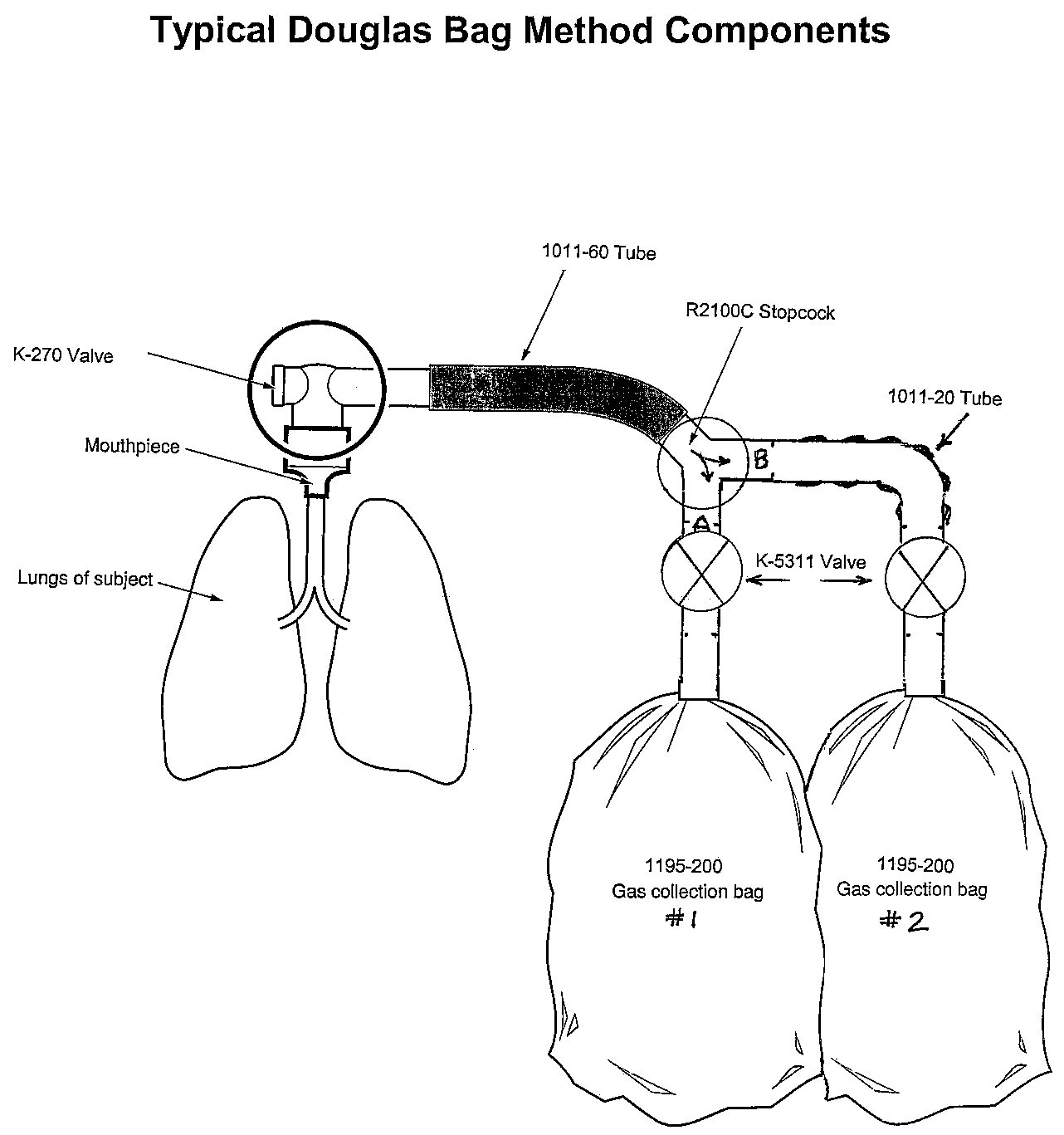You should also read
Deceptions of the Douglas Bag Validation Method
in Dr. Andrew's Corner.

(Click on photo to enlarge it, then on BACK button to return)
The following components are required:
- Gas Analyzers
O2 Analyzer: See our
17620
, 17625
or 17518
CO2 Analyzer: See our 17630
or 17515
If you are using brand "X" gas analyzer you may also need our model 17503 Pump/Flow Controller, our own gas analyzers have a built-in pump.
If you need a drying column for your gas analyzer Click here
- How to measure volume:
a. Dry Gas Meter # 17150
b. Model 17125 or 17130 Turbine Volume Meter, the best choice because it may later be incorported into a computerized metabolic measurement system, or
c. A Calibration Syringe to evacuate the gas collection bag in measured increments. We suggest the 7-liter size because if you test an athlete with 120 liter minute ventilation and you have a 1-liter syringe, it will take 120 strokes to evacuate the bag. Think about it!
If you choose the syringe method you will need the stopcock in (4) below.
- A Patient Interface
Choose a
mouthpiece , noseclip and
breathing valve or
a more comfortable Air Cushion Mask.
If you choose a mouthpiece and noseclip, we suggest you use the R2700B valve with saliva trap and either the R2726 or R2766 Head Support.
If you choose a face mask, we suggest you use the R2700 valve with the number KM295A mask starter kit.
- Gas Collection bags and related accessories
This usually means so-called "Douglas Bags", we suggest the 200 liter size for use in exercise.
Each bag will need a number K-5311 closing valve.
To prevent damage to the bag, they should be suspended. Either rig a suspension wire in your lab or consider our number 1195-R Suspension Rack.
Each rack can hold 3 filled bags.
In addition to the closing valve, you need a manual
stopcock. We suggest number R2100C. The purpose of the stopcock is two-fold:
a. To switch the test subject from exhaling into air to exhaling into the bag on command, and
b. To connect the evacuation syringe alternately to the bag and to air.
- Barometric Pressure, Humidity & Temperature.
Required for BTPS, ATPD, ATPS and STPD corrections.
(We have the formulas if you need them)

Last Updated: 31 Dec 2018
Do not click on "Add to Basket" here














